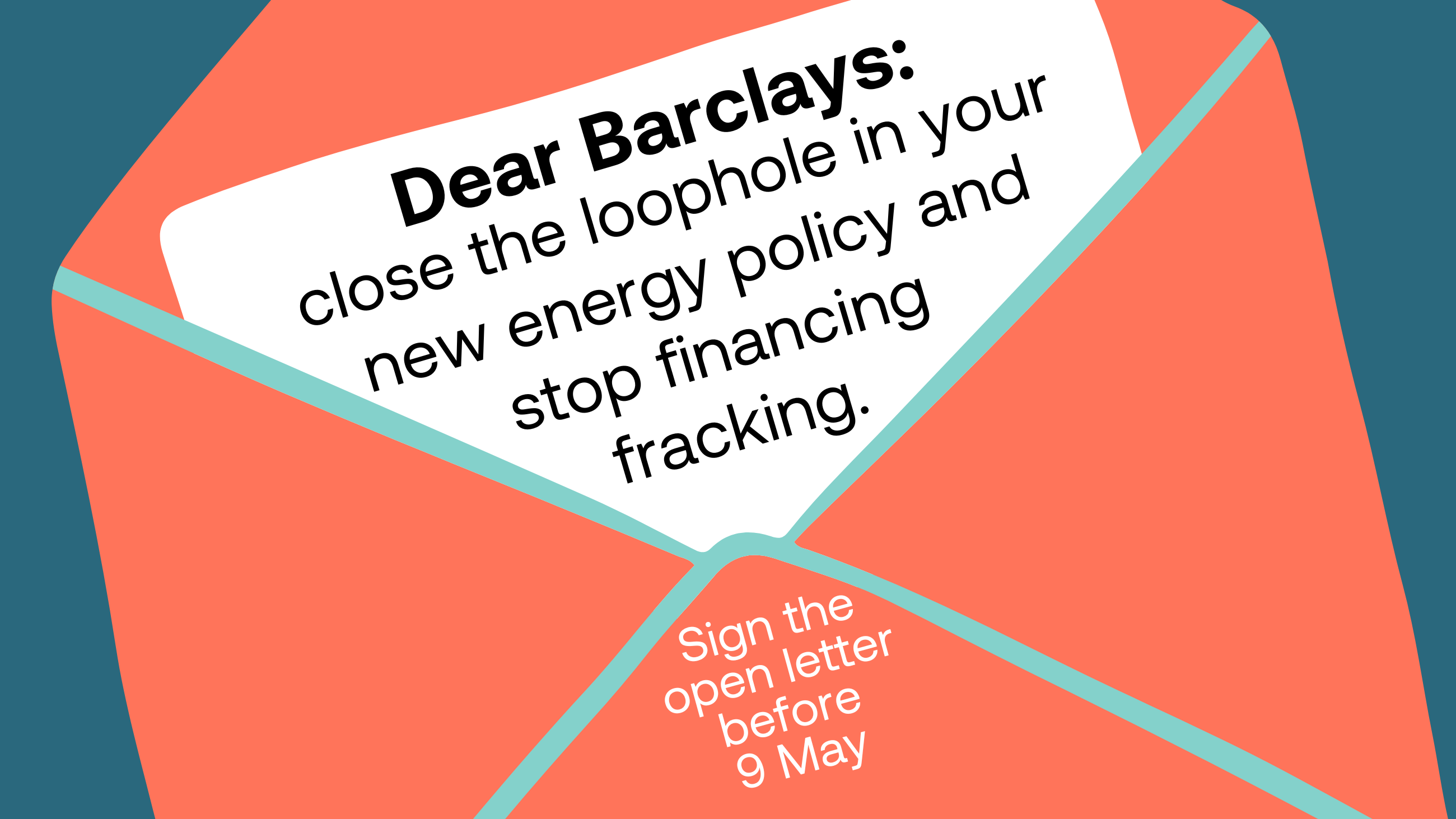Last month, Barclays, the UK’s second largest bank and Europe’s biggest financer of fossil fuels, released an updated energy policy that commits it to stop directly funding new gas and oil projects. This followed months of pressure from ShareAction, through behind-the-scenes talks with Barclays and working with its shareholders to hold the bank to account.
On the surface, no longer providing this kind of finance for specific new oil and gas projects seems like a huge step forward for the bank – and it is. We also welcomed the bank’s pledge to conduct basic climate tests of existing oil and gas clients and ask them to publish plans for how they will reduce or stop their carbon emissions completely.
But ceasing project financing for new oil and gas expansion is the bare minimum we’d expect from a major bank like Barclays. It simply brings it in line with 17 out of Europe’s largest 25 banks that have already made this commitment. Its impact will be limited because this ‘project’ financing accounts for only a tiny percentage of the money that Barclays provide to drilling for new fossil fuels. This loophole in Barclays’ energy policy allows the bank to continue financing oil and gas expansion in other ways – including through fracking.
New policy still allows Barclays to finance oil and gas expansion indirectly
Barclays’ new commitment only covers a tiny fraction of its financing of oil and gas expansion, almost all of which is via ‘corporate’ financing – which remains largely unrestricted in the updated policy.
Let’s look at an example of what this could mean in practice.
Under the new policy, Barclays could not directly finance a specific project like Rosebank - the planned oil field in the North Sea controversially approved by Rishi Sunak last year. However, it could provide the same amount of money to Equinor, the company that owns the project.
Another problem with the policy concerns oil and gas ‘pure play’ – companies whose whole business is about extracting one, or both, of the fossil fuels. These companies are highly unlikely to be able to transition their business models to zero carbon emissions. After pressure from ShareAction and investors, Barclays said it would have a ‘limited appetite’ to finance these companies.
However, the bank refused to rule out financing ‘pure play’ companies with short-term expansion plans – notably its large fracking client base. This means Barclays will continue to finance fracking expansion indirectly – a destructive activity that can cause huge environmental and social harm.
ShareAction analysis has revealed that fracking companies make up a significant part of Barclays' oil and gas portfolio. The bank is currently the number one European bank financing fracking, and the eighth biggest financier globally.
Communities raise concerns about fracking
Barclays’ top pure play fracking client, EQT Corp, has received a total of US$1.8 billion since 2016 from the bank – the most money it has ever provided to any fracking company. EQT Corp is one of America’s largest producers of shale gas and has plans to expand production – plans which fail to align with the path to net zero.
Two communities living close to EQT Corp flagship projects in Pennsylvania and West Virginia have raised concerns that the company's fracking activity has had detrimental impacts on their local environment and health - allegations that EQT Corp denies.
In New Freeport, Pennsylvania, many residents felt their drinking water was not safe to drink after an incident in 2022 where drilling may have contaminated the local water supply. A year after the incident, feeling as though they didn’t have conclusive evidence otherwise, some residents were still drinking bottled water.
In West Virginia hamlet Knob Fork, the US Environmental Protection Agency is currently investigating EQT's fracking operations after an inspection in March 2023 found leaks and harmful emissions in the region. Residents reported health issues like difficulty breathing, rashes, and twitching muscles, which they believed to be caused by contact with harmful fracking chemicals. There were even incidents of families abandoning their homes – with one resident stating it was ‘no longer a home’ and now ‘a place of sickness’.
Barclays’ new policy allows it to continue financing EQT Corp with no strings attached.
Keeping the pressure on
As a result of our campaigning, Barclays’ CEO has personally agreed to meet with ShareAction and the investor group we coordinate every September for the next three years to discuss the bank’s future energy policy updates. We'll continue to challenge the company to act responsibly, ensuring it sticks to its pledges and importantly, builds on them.
In the meantime, we will keep working with investors and the public to hold Barclays to account, ensuring the bank’s climate actions match its climate promises. It’s vital that it play its role in driving the transition to net zero.
Sign our open letter

We'll be heading to the Barclays AGM in Glasgow on 9 May. We would love your support as we face the company directors, asking them to close the loophole in the energy policy and choose people and planet over profit. You can help us add pressure by signing this open letter that we’ll be handing in while we’re there.